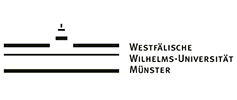Universality of Rights as an Interpretive Principle for the Indonesian Constitutional Court
DOI:
https://doi.org/10.31078/consrev1027Keywords:
Constitutional Interpretation, Human Rights, UniversalityAbstract
This article discusses issues regarding constitutional interpretation in general, and the interpretation of human rights provisions in the constitution in particular. The setting of the discussion is the role of the Constitutional Court of Indonesia in reviewing the constitutionality of laws based on Chapter XA of the 1945 Constitution. Constitutional interpretation is pivotal in deciding the constitutionality of laws. Therefore, this article aims to propose an interpretive principle to the Constitutional Court when interpreting human rights provisions in deciding the constitutionality of laws. The interpretive principle is the universality of rights. In other words, this article suggests the Constitutional Court adopt the universality of rights principle in interpreting Chapter XA of the 1945 Constitution. The principle of universality of rights departs from the understanding that human rights are natural rights. The interpretive principles that can be derived from the principle of universality of rights are as follows. First, recognition of unenumerated rights. Second, minimalization of the exercise of human rights limitation norms. Third, prioritization of protection of minorities. Fourth, encouraging the use of comparative approach in interpreting constitutional human rights norms. These interpretive principles are discovered through a comparative approach, in this case referring to judicial practices in other countries as well as regional and international judicial bodies that are considered relevant. The rationale behind this proposal is that human rights interpretation using the universality of rights principle can enhance the protection of human rights. Suppose judicial review of the constitutionality of laws is dedicated to enhancing human rights. In that case, constitutional interpretation should be dictated by the universality of rights principle as the interpretive principle.
References
Arnold, Rainer. “Reflections on the Universality of Human Rights.” In The Universalism of Human Rights, edited by Rainer Arnold, 1–12. Dordrecht: Springer, 2013.
Avila, Humberto. Theory of Legal Principles. Dordrecht: Springer, 2007.
Baehr, Peter R. Human Rights: Universality in Practice. London: MacMillan Press Ltd., 1999.
Baehr, Peter R., and Monique Castermans-Holleman. The Role of Human Rights in Foreign Policy. London: Palgrave, 2004.
Barak, Aharon. “A Judge on Judging: The Role of a Supreme Court in a Democracy.” Harvard Law Review 116, no. 1 (2002): 16–162. https://doi.org/10.2307/1342624.
Barak, Aharon. Purposive Interpretation in Law. New Jersey: Princeton University Press, 2005.
Barnett, Randy E. “Are Enumerated Constitutional Rights the Only Rights We Have? The Case of Associational Freedom.” Harvard Journal of Law and Public Policy 10, no. 1 (1987): 101–115.
Barnett, Randy E. “Foreword: The Ninth Amendment and Constitutional Legitimacy.” Chicago-Kent Law Review 64, no. 1 (1988): 37–65.
Barnett, Randy E. “Reconceiving the Ninth Amendment.” Cornell Law Review 74, no. 1 (1988): 1–42.
Baude, William, and Stephen E. Sachs. “The Law of Interpretation.” Harvard Law Review 130, no. 4 (2017): 1079–1147.
Bedi, Shiv R.S. The Development of Human Rights Law by the Judges of the International Court of Justice. London-Portland: Hart Publishing, 2007.
Bernhardt, Rudolf. “Human Rights and Judicial Review: The European Court of Human Rights.” In Human Rights and Judicial Review: A Comparative Perspective, edited by David M. Beatty, 267–295. Dordrecht: Martinus Nijhoff Publishers, 1994.
Brest, Paul. “The Supreme Court 1975 Term – Foreword: In Defense of the Antidiscrimination Principle.” Harvard Law Review 90, no. 1 (1976): 1–54. https://doi.org/10.2307/1340306.
Chemerinsky, Erwin. “The Rehnquist Court and Justice: An Oxymoron?” Washington University Journal of Law and Policy 1, no. 1 (1999): 37–53.
Cram, Ian. “Resort to Foreign Constitutional Norms in Domestic Human Rights Jurisprudence With Reference to Terrorism Case.” Cambridge Law Journal 68, no. 1 (2009): 118–141.
Constitutional Court of the Republic of Indonesia. Decision No. 011-017/PUU-I/2003. 2003.
Constitutional Court of the Republic of Indonesia. Decision No. 013-022/PUU-IV/2006. 2006.
Constitutional Court of the Republic of Indonesia. Decision No. 2-3/PUU-V/2007.2007.
Constitutional Court of the Republic of Indonesia. Decision No. 5/PUU-V/2007.2007.
Constitutional Court of the Republic of Indonesia. Decision No. 140/PUU-VII/2009. 2009.
Donnelly, Jack. “Human Rights as Natural Rights.” Human Rights Quarterly 4, no. 3 (1982): 391–405. https://doi.org/10.2307/762225.
Donnelly, Jack. “Human Rights and Human Dignity: An Analytic Critic of Non-Western Conceptions of Human Rights.” The American Political Science Review 76, no. 2 (1982): 303–316. https://doi.org/10.2307/1961111.
Donnelly, Jack. “Cultural Relativism and Universal of Human Rights.” Human Rights Quarterly 6, no. 4 (1984): 400–419. https://doi.org/10.2307/762182.
Donnelly, Jack. “The Relative Universality of Human Rights.” Human Rights Quarterly 29, no. 2 (2007): 281–306. https://doi.org/10.1353/hrq.2007.0016.
Donnelly, Jack. Universal Human Rights. New York and Ithaca: Cornell University Press, 2013.
Dworkin, Ronald. Taking Rights Seriously. Cambridge, MA: Harvard University Press, 1978.
Dworkin, Ronald. Freedom’s Law: The Moral Reading of the American Constitution. Oxford: Oxford University Press, 1996.
Ely, John Hart. Democracy and Distrust: A Theory of Judicial Review. Cambridge, MA: Harvard University Press, 1980.
Engle, Eric. “Universal Human Rights: A Generational History.” Annual Survey of International and Comparative Law 12, no. 1 (2006): 219–268.
Faiz, Pan Mohamad. “The Role of the Constitutional Court in Securing Constitutional Government in Indonesia.” PhD diss., University of Queensland, 2016.
Ginsburg, Tom. Judicial Review in New Democracies: Constitutional Courts in Asian Cases. Cambridge: Cambridge University Press, 2003.
Grimm, Dieter. “Human Rights and Judicial Review in Germany.” In Human Rights and Judicial Review: A Comparative Perspective, edited by David M. Beatty, 267–295. Dordrecht: Martinus Nijhoff Publishers, 1994.
Hannum, Hurst. “The Status of the Universal Declaration of Human Rights in National and International Law.” Georgia Journal of International and Comparative Law 25, no. 1 (1995/96): 287–397.
Harris, Hadar. “’We Are the World’ – Or Are We? The United States’ Conflicting Views on the Use of International Law and Foreign Legal Decisions.” Human Rights Brief 12, no. 1 (2005): 5–8.
Henkin, Louis. The Rights of Man Today. New York: Center for the Study of Human Rights – Columbia University, 1988.
Henkin, Louis. “The Universality of the Concept of Human Rights.” Annals of the American Academy of Political and Social Science 506 (1989): 10–16.
Howard, Rhoda E. HAM: Penjelajahan Dalih Relativisme Budaya. Translated by Nugraha Katjasungkana. Jakarta: Pustaka Utama Grafiti, 2000.
Humphrey, John P. “The International Bill of Rights: Scope and Implementation.” William and Mary Law Review 17, no. 3 (1976): 527–541.
Kurnia, Titon Slamet. Konstitusi HAM: Undang-Undang Dasar Negara Republik Indonesia Tahun 1945 dan Mahkamah Konstitusi Republik Indonesia [Human Rights Constitution: The 1945 Constitution and the Constitutional Court of Indonesia]. Yogyakarta: Pustaka Pelajar, 2014.
Kurnia, Titon Slamet. Interpretasi Hak-Hak Asasi Manusia oleh Mahkamah Konstitusi Republik Indonesia: The Jimly Court 2003–2008 [Interpretation of Human Rights by the Constitutional Court of Indonesia: The Jimly Court 2003–2008]. Bandung: Penerbit CV. Mandar Maju, 2015.
Lazaruz, Liora, Christopher McCrudden, and Nigel Bowles, eds. Reasoning Rights: Comparative Judicial Engagement. London-Portland: Hart Publishing, 2014.
Locke, John. Two Treatises of Government and A Letter Concerning Toleration. New Haven, CT: Yale University Press, 2003.
Lubis, Todung Mulya. In Search of Human Rights: Legal-Political Dilemmas of Indonesia’s New Order, 1966-1990. Jakarta: PT. Gramedia Pustaka Utama & Yayasan SPES, 1993.
Marshall, Margaret H. “’Wise Parents Do Not Hesitate to Learn from Their Children’: Interpreting State Constitutions in an Age of Global Jurisprudence.” New York University Law Review 79, no. 5 (2004): 1633–1656.
Martins, Ana Maria Guerra, and Miguel Prata Roque. “Universality and Binding Effect of Human Rights from a Portuguese Perspective.” In The Universalism of Human Rights, edited by Rainer Arnold, 297–324. Dordrecht: Springer, 2013.
McCrudden, Christopher. “Human Dignity and Judicial Interpretation of Human Rights.” European Journal of International Law 19, no. 4 (2008): 655–724. https://doi.org/10.1093/ejil/chn043.
Moore, Michael S. “Justifying the Natural Law Theory of Constitutional Interpretation.” Fordham Law Review 69, no. 5 (2001): 2087–2117.
Morsink, Johannes. The Universal Declaration of Human Rights: Origins, Drafting and Intents. Philadelphia: University of Pennsylvania Press, 1999.
Nasution, Adnan Buyung. Aspirasi Pemerintahan Konstitusional di Indonesia: Studi Sosio-Legal atas Konstituante 1956-1959. Translated by Sylvia Tiwon. Jakarta: Pustaka Utama Grafiti, 2009.
Nickel, James W. Refleksi Filosofis atas Deklarasi Universal Hak Asasi Manusia. Translated by Titis Eddy Arini. Jakarta: PT. Gramedia Pustaka Utama, 1996.
O’Scannlain, Diarmuid. “The Natural Law in the American Tradition.” Fordham Law Review 79, no. 4 (2011): 1513–1528.
Palguna, I.D.G., Saldi Isra, and Pan Mohamad Faiz. The Constitutional Court and Human Rights Protection in Indonesia. Jakarta: RajaGrafindo Persada, 2022.
Rahdert, Mark C. “Comparative Constitutional Advocacy.” American University Law Review 56, no. 3 (2007): 553–658.
Ramcharan, Bertrand G. “The Universality of Human Rights.” The Review – International Commission of Jurists 53 (1994): 105–117.
Rao, Neomi. “Three Concepts of Dignity in Constitutional Law.” Notre Dame Law Review 86, no. 1 (2011): 183–271.
Sellers, Mortimer. “Universal Human Rights in the Law of the United States.” In The Universalism of Human Rights, edited by Rainer Arnold, 13–31. Dordrecht: Springer, 2013.
Sieghart, Paul. The International Law of Human Rights. Oxford: Clarendon Press, 1983.
Simanjuntak, Marsillam. Pandangan Negara Integralistik [Integralistic View of the State]. Jakarta: Pustaka Utama Grafiti, 1997.
Spano, Robert. “Universality or Diversity of Human Rights? Strasbourg in the Age of Subsidiarity.” Human Rights Law Review 14, no. 3 (2014): 487–502. https://doi.org/10.1093/hrlr/ngu021.
Sweet, Alec Stone, and Jud Matthews. “Proportionality Balancing and Global Constitutionalism.” Columbia Journal of Transnational Law 47, no. 1 (2008): 72–164.
Talbott, William J. Which Rights Should Be Universal? Oxford: Oxford University Press, 2005.
Teson, Fernando R. “International Human Rights and Cultural Relativism.” Virginia Journal of International Law 25, no. 4 (1985): 869–898.
Vincent, R.J. Human Rights and International Relations. Cambridge: Cambridge University Press, 2001.
































































